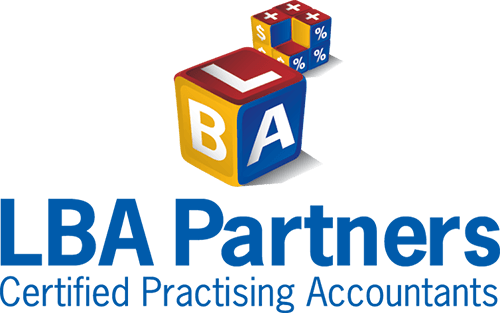P r a c t i c e U p d a t e
April 2011
End of the 2010/11 FBT Year
TheThe end of the 2010/11 fringe benefits tax (FBT) year, 31 March 2011, has passed and that means, that FBT returns will soon need to be lodged.
Editor: A fringe benefit is basically a benefit which does not represent salary and wages and is provided to somebody because they are an employee. However, not all benefits are subject to FBT. Certain benefits such as superannuation contributions are specifically exempted from FBT.
Where we usually prepare the FBT return for your business, we ask that you collect all relevant FBT records relating to any benefits provided, such as:
- motor vehicles;
- car parking;
- meal entertainment;
- expense payments; and
- living away from home allowances;
together with travel diaries, employee declarations, etc.
Editor: Please call if you need to make an appointment or discuss the records needed. The following is some general information about FBT as it may apply to you and your business.
FBT rate
The FBT rate of tax for the year ended 31 March 2011 is 46.5%.
Minor benefits exemption
Fringe benefits with a taxable value of less than $300 may be exempt from FBT if they are provided on an irregular and infrequent basis.
For a benefit to qualify for this exemption, the benefit must have a GST-inclusive taxable value of less than $300.
Meal Entertainment – what is it and when are you caught for FBT?
Editor: Meal entertainment is always a problem for FBT purposes because it relates to the provision of food and drink which may not be liable to FBT depending on the circumstances.
The following are examples of meal entertainment:
restaurants where family and clients are entertained;
- food and drinks provided at a staff social function;
- food and drinks provided to employees at functions on Friday nights;
- the cost of taking staff and their partners out to lunch; and
- ucost of taxis and limousines to and from meal entertainment venues.
- An employer who has provided meal entertainment fringe benefits may work out the taxable value of their meal entertainment under one of these three methods:
- 50/50 split method;
- 12 week register method; or
- actual expenditure incurred on meal entertainment method.
Editor: If you think you may have provided 'meal entertainment', we can help you choose a method to substantially reduce the FBT payable.
ATO focus on property developers
The Tax Office has issued an information sheet entitled "Tax avoidance on property sales – don't risk it" which is directed at trying to keep property developers on the straight and narrow.
The information sheet says that property developers who try and avoid declaring tax on the sale of property are more likely than ever to be contacted by the ATO.
The ATO is matching information provided on Business Activity Statements and income tax returns with information from the Office of State Revenue and Land Titles Office to ensure property developers are correctly reporting GST and income tax (including CGT) on property sales.
In a recent case, a taxpayer was identified as a developer of subdivisions who purchased rural farmland and then subdivided it into residential lots. Through data matching, the ATO identified over 100 sales made by the taxpayer.
The taxpayer had not reported the property sales and was charged the highest penalty applicable – amounting to approximately $4.5 million.
ATO focuses on sham contracting
The Tax Office has indicated that it is now focussing on the practice of 'sham contracting' – whereby employees are hired as contractors – a practice which apparently appears to be spreading to new industries and occupations.
The ATO states that, under sham contracting arrangements, employers often require workers to obtain an Australian Business Number in an attempt to portray the underlying employment relationship as a contract with a business operator.
Under the ATO's new audit focus and review systems on sham contracting, it has recently completed about 1,500 field cases, and expects that an additional 3,000 audits will be completed by 30 June 2013.
Sham contracting is prevalent in the building and construction industries, but has now spread into the following industries and workplaces:
- call centres;
- tourism & hospitality;
- cleaning;
- telecommunications.
- security;
- education;
- logistics;
- aged care;
- retail;
- health.
Labour hire arrangements using a discretionary trust
The ATO has issued an alert warning people not to enter into arrangements where payments for any work they perform are made via distributions from a discretionary trust, so that the person providing the services is supposedly able to split their income with an associate (usually their spouse).
How the arrangement works
A labour hire firm puts on "service providers" to perform work or services for a third party client of theirs.
Once the work is performed or services provided, the labour hire firm invoices the client, receives payment and then pays the service provider via a discretionary trust.
Although distributions are supposedly discretionary, in reality the payments are consistent with the service provider's set rate of remuneration less the management fees deducted by the labour hire firm.
Editor: The Tax Office is taking a dim view of these arrangements.
ATO warns about new scam email
Tax Commissioner, Michael D’Ascenzo, has warned the community to be aware of a particularly nasty fake email claiming refunds from the ATO.
"This new type of scam pretending to be from the ATO contains a virus which is an attachment to the message," Mr D’Ascenzo said.
The email contains a message in a zip file named "Restore your account" and asks for personal and credit or debit card details in order for the ATO to pay a tax refund.
He said that the ATO never sends emails asking people to provide their personal information or credit card details, so any email requesting personal and credit or debit card details is a hoax or scam.
Donations for relief effort in Japan
The government has declared that the earthquake and tsunami that hit North-Eastern Japan on 11 March 2011 is a disaster for tax purposes.
This declaration allows taxpayers to claim an income tax deduction for donations made to the relief effort. Donations to funds are tax deductible for a period of two years from 11 March 2011.
Please Note: Many of the comments in this publication are general in nature and anyone intending to apply the information to practical circumstances should seek professional advice to independently verify their interpretation and the information's applicability to their particular circumstances.
Management Consulting
We have the know-how and experience to offer advice that helps you run your business more effectively.
Self-Managed Superannuation Funds
At LBA Partners we provide the professional advice you need to manage your own fund and greatly simplify the process for you.



